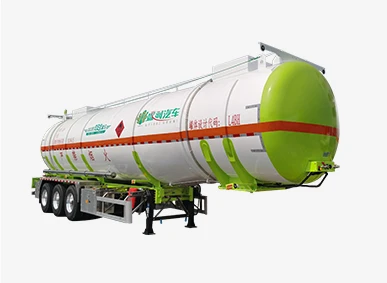Precautions for storage and transportation of liquefied petroleum gas
Liquefied petroleum gas is extremely harmful,
The consequences of gas explosion disasters cannot be underestimated
During storage and transportation,
Be careful, safety first!
★Gas such as nitrogen, oxygen and argon are stored and transported by liquefaction at very low temperature or high pressure compression at ambient temperature.
★Ammonia, chlorine, sulfur dioxide, vinyl chloride, propane, liquefied petroleum gas (LPG), and other gases such as dimethyl ether (DME), condense into liquids at room temperature and moderate pressure, and usually come in the form of liquefied gases storage and transport.
★Containers with condensate contain more material than containers of the same size with compressed gas because liquids have a higher density than gases. For example, taking an argon cylinder with a pressure of 2900 psig (about 200 bar) as an example, if a cylinder of the same size is used to hold the same amount of liquefied propane, the pressure only needs to be Il6 psig (8 bar).
★Liquefied petroleum gas, like most other liquids, has the characteristic of thermal expansion. As the liquid expands, the vapor space inside the closed container is compressed, and if the container is completely filled with liquid and continues to be heated, it will rupture under pressure due to the expansion of the liquid. Even with a relatively small increase in temperature, the thermal expansion of a liquid can generate enormous pressure, and the result of a vessel rupture is a Boiling Liquid Expansion Vapor Explosion (BLEVE).
★The energy of a pressurized container depends on its size, temperature, pressure, and the state of the material contained in it—whether it is a condensed liquid or a compressed gas. Avoid exposing the container to the heat source of the surrounding environment to prevent the internal energy of the container from increasing.
★Read the safety precautions of the gas container you are using, and operate according to the recommended procedures.
★If you are engaged in the filling operation of liquefied gas containers, make sure that there is no overfilling.
★Liquefied gas may be used in your home, such as fuel used in barbecue ovens, household heaters, water heaters, stoves, etc. There may also be liquefied flammable gases in lighters or spray cans. Treat these hazards with the same care you would at work and make sure your family is aware of the dangers.
The danger of liquefied gases cannot be underestimated!





